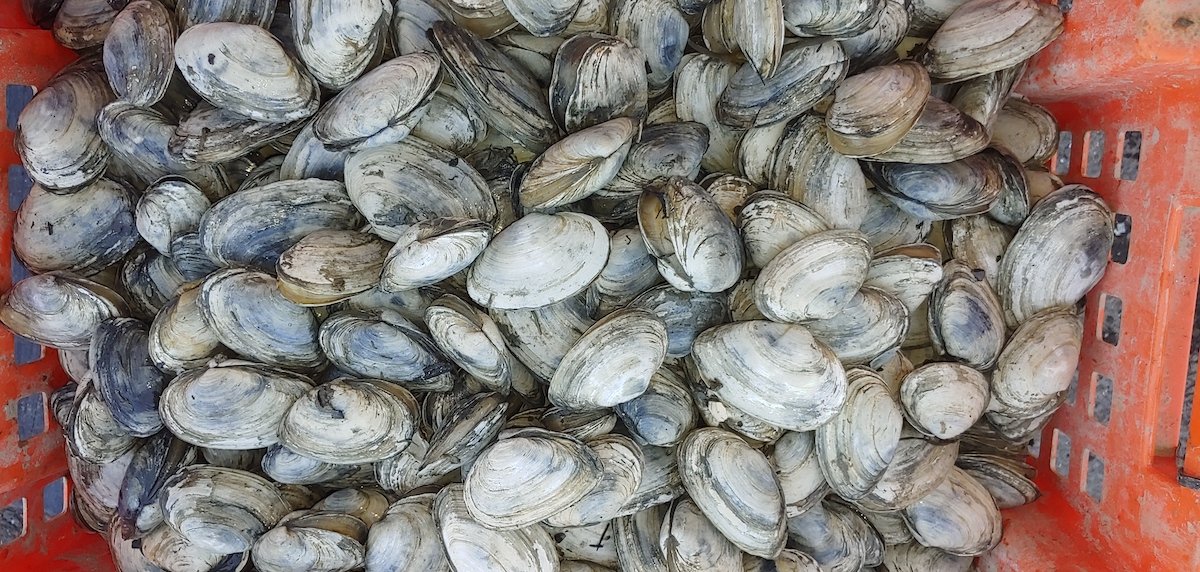Clam Crisis: The Struggle of Pacific Northwest Clams Against a Contagious Cancer Epidemic
By Juliet Wiener, Oceanography ‘26
Clams, a culinary staple in Seattle and a culturally significant food source for Pacific Northwest tribes, are facing an unprecedented threat. A novel leukemia-like cancer has recently been discovered in Pacific Northwest clams, and the population impacts are quite dramatic.
Unlike cancers found in humans, this particular variant is contagious, making it one of the few instances in the animal kingdom where cancer can be transmitted through physical contact. With bivalves specifically, the cancer cell travels from one individual to the next via the seawater in their environment. Beaches along the Salish Sea are witnessing widespread occurrence of clams succumbing to this form of cancer.
Despite the fatalities, scientist Dr. Micheal Metzger has also observed some clams developing resistance to these cancers. Metzger is an assistant investigator at the Pacific Northwest Research Institute and an affiliate faculty member in the University of Washington’s Department of Genome Sciences and the Molecular and Cellular Biology Program. While it is not yet known what gave rise to these adaptations, Metzger hopes that studying these clams may give insights into ways to help humans build resistance to certain cancers as well.
Image Credit: Metzger Lab/Pacific Northwest Research Institute
“That’s really one of our main goals in the lab, to take this extreme example of what cancer can do and to try to learn from that things about cancer evolution that can be applicable to human health,” Metzger explains. “Some of the clams are even able to reject the cancer and become healthy again. And so one of the things we are really excited about is understanding how that happens, and we don't really know at this point but we hope that if we can find out how a clam is able to block a cancer that could be important for human health.”
A host of other factors are also at play in this investigation. Researchers are finding that these cancer cells seem to thrive in seawater as opposed to freshwater. From this, scientists are learning that an estuary-type freshwater environment might be a better place for soft-shell clam aquaculture.
Additionally, Metzger’s lab is currently conducting experiments to understand the effects of temperature on these cancer cells. Some tests reveal the cells survive for longer periods at lower temperatures, while other preliminary data shows that the disease may progress faster at higher temperatures. Once there is better understanding of the correlation between this disease and climate, setting up an aquaculture system in a specific temperature range may also help mitigate this cancer. A persistent challenge is that researchers do not yet know how to better conserve this species in the wild.
The Suquamish Tribe is currently working in conjunction with the Metzger Lab to create hatcheries and increase clam populations. Metzger explained, “this whole project was initiated because the Suquamish were interested in starting up a hatchery to increase the numbers of cockles… when they first did a health screen[ing] and found that the animals have cancer, they then came to us and we found that it was a transmissible cancer. We have been working closely with them and with other tribes to try to get samples of cockles from different locations to find out where these cancers are throughout Puget Sound.”
The collaboration between local tribal communities and scientific researchers offers new hope for the future of Pacific Northwest clams, paving the way for innovative solutions to safeguard these ecologically and culturally significant bivalves.
Image Credit: Downeast Institute


